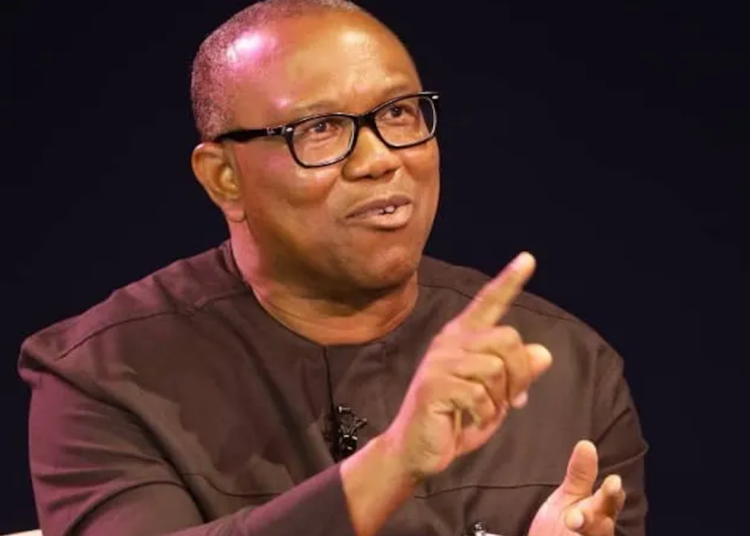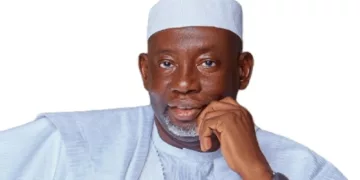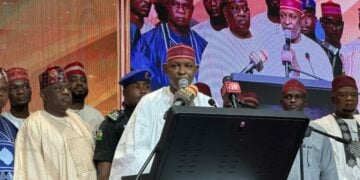Peter Obi got the nomination of the Board of Editors as the Politician of the Year following the pleasant shock treatment he administered on the polity as a first-timer in a presidential race. There is no Nigerian whose entrance into the presidential race for the first time changed the calculation as he did.
He caused a tie of 12-state victory each for him and two other major contenders, Bola Ahmed Tinubu (APC) and Alhaji Atiku Abubakar (PDP). He was Atiku’s running mate in the 2019 election.
Obi had on March 24, 2022, declared his intention to run for president of Nigeria on the platform of the Peoples Democratic Party (PDP), but he later pulled out and announced he would be running on the Labour Party platform instead. Many thought that decision was fatal and gave him no chance. But he went ahead to resign from the PDP on May 24, 2022.
He joined the Labour Party and obtained its presidential ticket. For the first time, a struggling political party drew admiration especially from the youth segment of the population.
The “Obidient movement” emerged from a group of Nigerians mostly under the age of 30 and soon drew the attention of even older members of the electorate. They showed their support via social media and street marches but, within weeks, they formed a big coalition.
The established political class did not take the Obidient movement seriously but day in, day out, the young supporters keep increasing because of Obi’s ideology of “From consumption to production”.
A section of the older citizens and the undecided voters joined the Obidient movement. When the results were announced on March 1, 2023, and Obi received 6.1 million votes from 12 states and the Federal Capital Territory, Nigerians agreed that his stride was unprecedented. As a matter of fact, he was the only presidential candidate who scored the mandatory 25 per cent of the vote in the FCT. Even more baffling was that he won in Lagos of all places. That was the measure of his acceptability.
Obi was born in Onitsha on July 19, 1961. He served as governor of Anambra State from March to November 2006, February to May 2007, and June 2007 to March 2014.
Obi studied Philosophy at the University of Nigeria, Nsukka. He went into business and was involved in trading, manufacturing and banking, eventually holding several executive positions in several banks.
Obi contested for governor in 2003 as a member of the All Progressive Grand Alliance (APGA), but PDP’s Dr Chris Ngige was declared winner of the election. In 2006, the election of Ngige was nullified and Obi was declared winner of the 2003 election; he assumed office in March 2006. He was impeached in November of the same year by the Anambra State House of Assembly led by Hon. Mike Balonwu.
However, his impeachment was overturned and he returned to office in February 2007. Obi was also removed after the 2007 Anambra State gubernatorial election, but the judiciary again intervened by ruling that he should be allowed to complete a full four-year term. In 2010, he was re-elected for a second term.
As the governor of Anambra State, he won accolades from far and near on account of his considered spectacular record of achievements especially in prudent management of state resources. “Okwute”, as he is fondly called by his admirers, was one of the few governors who never borrowed money throughout his eight-year tenure to finance projects. Instead, he handed over to his successor huge assets and bank deposits, a move applauded even internationally.
After leaving office in the year 2014, Obi decamped to the Peoples Democratic Party. In 2019, he was selected as the PDP vice-presidential candidate on the Atiku Abubakar ticket, but they lost to then incumbent president Muhammadu Buhari and vice president Yemi Osinbajo.
Since Obi joined the presidential race, the polity has not just changed; things have never remained the same. He proved that a politician can run on the mantra of integrity and be accepted.





